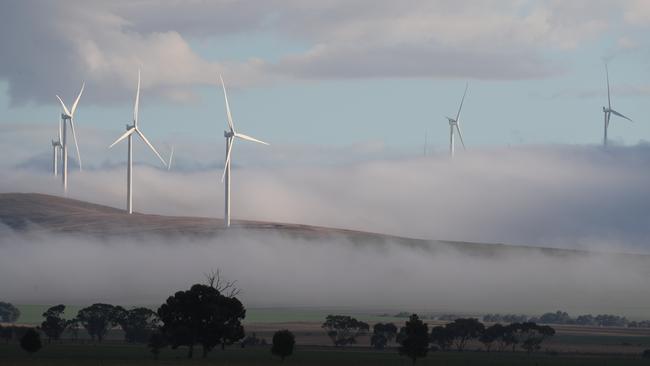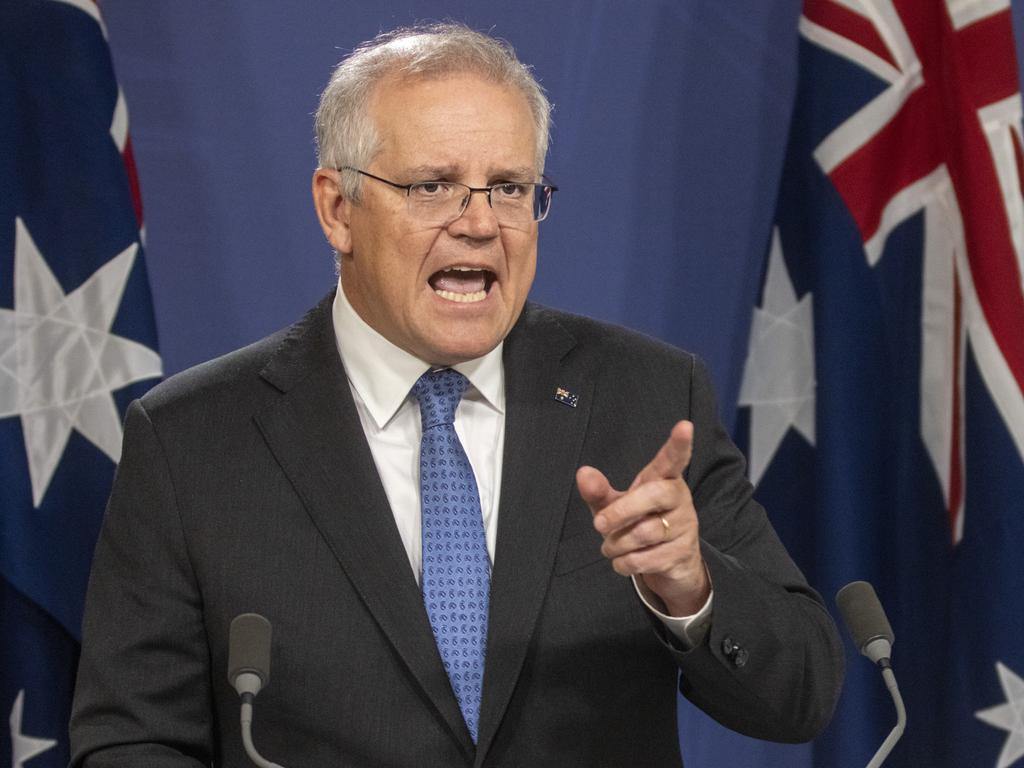Joe Biden’s bid to enforce climate club

Even though the long-planned UN Climate Change Conference will take place later this year in Glasgow, the Biden administration determined that it would call a two-day online conference, scheduled to begin on Thursday US time, addressing the issue of energy, climate change and the actions it deems necessary.
The US administration now proposes to spend $US2.9 trillion ($3.76 trillion) on infrastructure, most of which is climate-related and which is before congress — this is almost as much as total annual revenue and comes on top of a $US2 trillion deficit.
This fusillade of policy measures and diplomatic pressures from the US has magnified enormously the same pressures that have been exerted by the EU. They include threats of trade discrimination — a carbon import tariff — on goods from nations not deemed to be doing sufficient to suppress their emissions.
Such threats even register with China (the emissions of which exceed those of the EU and US combined), which has assured the world that it will achieve “carbon neutrality” by 2060. China’s assurances are somewhat hollow in view of having one million megawatts of coal power capacity (Australia has 25,000MW) with a further 200,000MW planned.
In contrast to fast-growing economies, Australia’s reduction in coal generator capacity has been under way for years. It stems not from a lack of competitiveness on the part of coal but as a result of regulations and direct support that subsidises wind and solar. These subsidies affect the profitability of coal plants by forcing them to run below capacity and operate stop-start. Growing nations in our part of the world — India, China, Bangladesh, Vietnam, Laos and Cambodia — have recognised the road to prosperity is cheap, dependable electricity and all have rapidly expanding coal-generating capacity.
Australia wastefully has spent much more than most other nations on measures targeted at reducing greenhouse gas emissions. The ultimate test of this is per capita spending on wind and solar, where Australia has spent twice that of the next highest nations (US and Japan), three times as much as Germany and six times as much as China.
In discriminating against coal (where our domestic resources have no peers in quality and cost) Australian policy amounts to self-harm. It is actuated by a variety of factors. Originally the policies were to give a leg-up to renewables that were seen as potentially cost competitive. The lobbying power of renewable energy interests have augmented this. More recently we see added fear of being ostracised by the Western nations club as a result of the carbon emissions suppression orthodoxy.
Such dynamics strengthen the hand of domestic true believers in cataclysmic global warming. True believers and vested interests happily accept CSIRO fantasies that renewables are now cheaper than coal, while considering renewables subsidies to be essential.
The estimated cost of new actions announced by Scott Morrison this month comes on top of a plethora of support measures for renewables already in place. Such support costs $7bn a year in a wholesale electricity market worth under $12bn and a retail market worth only $30bn. On top of these costs is the $10bn Snowy 2.0 pump storage facility.
The Morrison government has not bought the fable of low-cost wind but, at least in part because of international pressure, it is doubling down on the penalties to coal that the renewable subsidies have brought. This includes the announcement of a further $1bn for the South Australian electricity grid, made unworkable by subsidised renewables, as well as additional support for the impossible economics of carbon capture and storage and hydrogen. The latest measures are icing a cake that government policies have already over-sugared.
For his part, Anthony Albanese has gone the full Sanjeev Gupta, chasing the mirage of green manufacturing. He has foreshadowed even greater subsidies for renewables, despite claiming them to be cheaper than coal, as a foundation for a resurrected manufacturing industry.
As a nation, we continue to sacrifice competitiveness and increased income levels to pursue wokeness. All this said, it has to be recognised that the outcome of a forced reduction in greenhouse gas emissions, if brought about, would have only a trivial effect on the climate. Global temperatures have been increasing for 150 years and it is only in the past 50 years that human emissions could have had any effect. Contrary to assertions, the deleterious effects sometimes mentioned have not taken place: there has been no increase in hurricanes, bushfires or other natural disasters, no rise in the oceans, the ice caps are not melting, polar bear communities are flourishing and, as all Australians will be aware, the dams are full when activists claimed this would never happen again.
We have a mix of genuine fears that mankind is irretrievably changing the world’s climate that no amount of evidence that this is not presenting serious threats will calm. We have businesses seeking to take advantage of this by seeking subsidies. And we have politics seeking to chisel out a prime role for itself in harnessing the world economy. These factors are a potent brew with drastic implications for a prosperous Australia. They also have wide-ranging geopolitical implications given the seemingly unstoppable growth of an aggressive China that, irrespective of its pledges, will not allow its wealth to be curtailed by adopting high-cost forms of energy.
Alan Moran has written chapters on Australia in five global compendiums on energy and in several Australian works, the latest being Keeping Australia Right. His most recent book is Climate Change: Treaties and Policies in the Trump Era.





The urgency of the Biden administration in pursuing green policies signifies the prominence of the issue in terms of world diplomacy and domestic policies in the US, Australia and elsewhere.